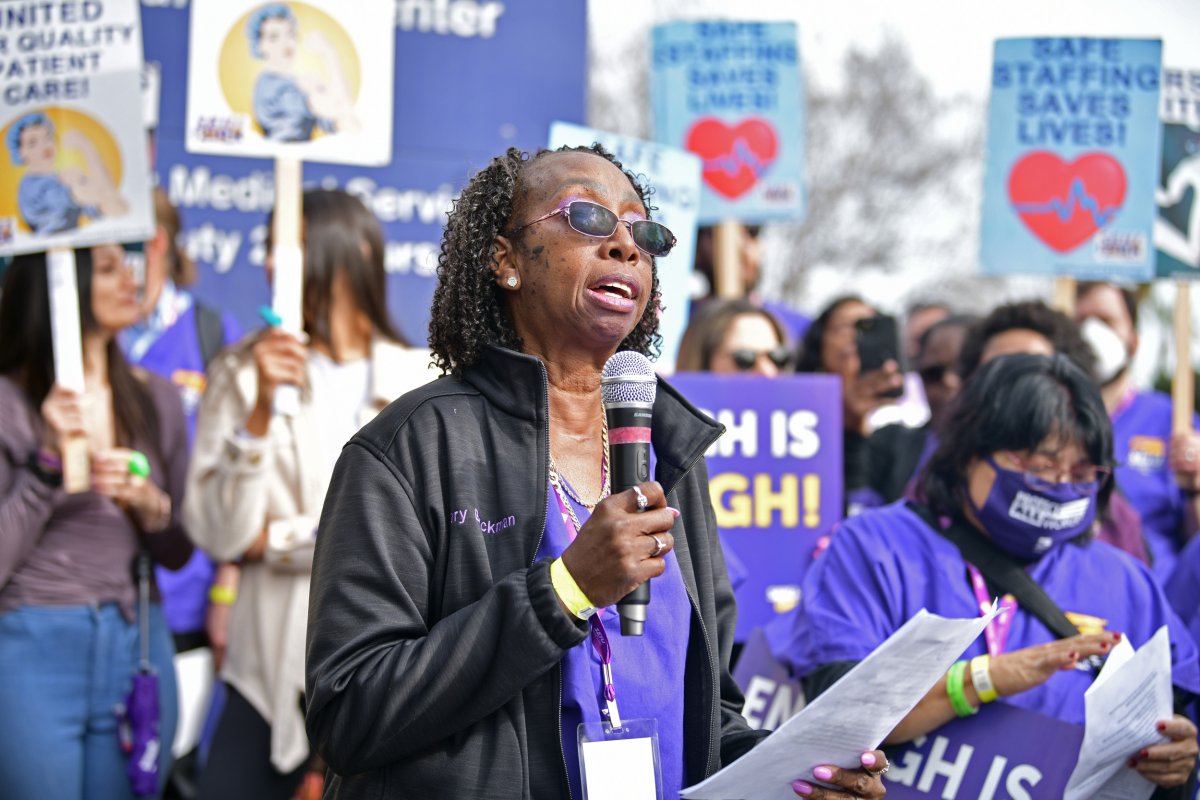During the holidays, nurses are striking or preparing to strike in many states around the country, and for good reason. Unless you work in health care, you don't know how toxic this industry can be. That's true even after the COVID pandemic shined a bright light on problems like the lack of fully trained personnel available to take care of our loved ones after they are admitted to the hospital.
I've worked in the trenches as a registered nurse for 29 years, but fewer and fewer people in my position are willing to do that. The American Hospital Association estimates that a half million nurses will leave the field by the end of 2023, bringing the total shortage to 1.1 million.
A typical day of a nurse can look a lot like a recent Friday I worked at my local hospital in Delaware. I am a nurse in a Post-Anesthesia Care unit. We receive people freshly off anesthesia and post-operative procedures. I came in at 9:30 a.m. and couldn't take a break until 4:30 p.m. I had a headache, was exhausted and had only 30 minutes to eat and then return to my shift. We were short-staffed, as is often the case, and it was a constant struggle to serve patients' critical needs. Days like this—and there are many of them—increase burnout and the chance for error, which can cost people their lives.

Of course, there's a solution to this that works all around the country: unionization. Unions provide guard rails that help save lives of patients—and staff. They improve staffing levels and other workplace rights, all while giving nurses a voice and job security.
But I'm in Delaware, where nurses are not allowed to join unions and days like Friday are common. Unfortunately, it doesn't look like we'll be getting union representation soon where I work. It's so bad that even whispering "union" near management could get me fired. This needs to change.
For anyone to do the job well and be a good nurse, you need 15-minute breaks after four hours of work so you can hydrate, reset yourself, and use the bathroom Our fight is not for golden bedpans, but for basic employment rights. Without these rights, work stoppages are growing around the country.
On Nov. 21, Ascension Joseph Hospital in Illinois went on strike. In Everett, Washington, 1,300 Providence Regional Center nurses have walked the picket line since Nov. 14. In October, 75,000 nurses and other healthcare workers for Kaiser Permanente stood up for their rights by striking. For two days they highlighted unjust labor practices, low wages, unfair health care and pension benefits and short staffing. And we have seen some successes. The Kaiser walkout led to a historic new contract, and a three-day strike at Mount Sinai and Montefiore hospitals in New York City led to a historic deal, creating a set nurse- to patient ratio, among other terms.
Hospitals need to listen to their nurses about dangerous staffing levels and allow for basic human needs like giving longer breaks. CEO's and boards of directors who cut corners are not treating health care professionals with the dignity or respect they deserve or providing the working conditions that they need.
I miss when I worked in New York and we had the Professional Nurses Union, which had an office right near Lenox Hill Hospital on Manhattan's Upper East Side. You could call the office, write up concerns, have hearings about possible resolutions and work together as a team.
If you worked 12 hours, you got 1 hour and 45 minutes break time. Having civilized meal breaks, rests, and bathroom breaks made it possible for us to offer high quality care with pride. It's a situation to emulate, but we're not there yet.
Nurses are the nervous system of the health care industry. Meeting their basic demands is imperative. Whether it's a small-town clinic or a large metropolitan
hospital, we need to make real changes for a more uplifting work environment.
And that will take unions in every state. Concerned citizens should call their local representative demanding the right to unionize for all nurses across the country.
Christine Villabona-Kuntz is writing a book about her 29 years working around the country as a registered nurse.
The views expressed in this article are the writer's own.
Uncommon Knowledge
Newsweek is committed to challenging conventional wisdom and finding connections in the search for common ground.
Newsweek is committed to challenging conventional wisdom and finding connections in the search for common ground.
About the writer
To read how Newsweek uses AI as a newsroom tool, Click here.






